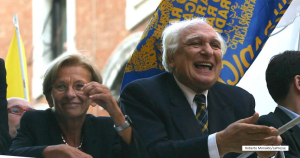Sudan has just held its first multiparty general elections in 24 years. While we are still waiting for the official results to be announced, we cannot question the fact that they were not conducted under conditions of transparency, fairness and credibility required to ensure the legitimacy of the winners.
These – parliamentary, presidential and regional – elections were one of the key elements of the fragile peace agreement, sealed in 2005 between North Sudan and South Sudan, and are supposed to precede a referendum on self-determination of southern Sudan in January 2011.
The peace agreement provided for the holding of a census to draw up electoral districts, determine the number of elected officials and organize the preparation of electoral lists. But these processes were sharply disputed by the southerners, who alleged that the manipulation of constituencies, vote-buying tribal leaders, and non enrollment on the lists of the 2.6 million Darfuris displaced in refugee camps after the civil war invalidated their accuracy. Intimidation, restrictions on freedom of expression, arrests of representatives of the opposition and unequal access to media both in South Sudan and in the country in general, marred and further discredited the election campaign orchestrated by President Omar Al-Bashir’s ruling NCP party.
In this context, undermined by fraud and irregularities, the main opposition parties (including the Umma Party of former Prime Minister Sadiq el-Mahdi, who won the parliamentary elections in 1986, and the ex-rebels of the Southern People’s Liberation Movement (SPLM)) decided to boycott the presidential and to participate only partially in the legislative and regional. The observer mission of the European Union for Sudan election decided, for its part, on the eve of the vote to withdraw its staff from Darfur, noting the impossibility of fulfilling its task in a credible manner in this region plagued by civil war. Regarding the observers deployed by the African Union, the Arab League, Japan and the “Carter Center”, it is hard to understand why they decided to stay under these conditions, and risk signalling acquiescence.
In the absence of major opponents, there is little doubt that President Al-Bashir is assured of a clear victory and be returned to office. A power won and nurtured for two decades by corruption, violence and massacres committed against the civilian population. It is also clear that President Al-Bashir hopes to benefit from increased legitimacy through these elections, more than a year after the arrest warrant issued against him by the International Criminal Court (ICC) for seven charges of war crimes and crimes against humanity in Darfur.
The naïve or complicit blindness shown by the international community by continuing to condone a fraudulent process, orchestrated to ensure the maintenance of the bloody dictatorship of President Al-Bashir, is absolutely deplorable. The UN and the African Union, which maintain substantial missions in Sudan, are desperately trying to convince themselves that these elections are a positive event that could open a democratic space and change the game in this country. By adopting such a policy of appeasement and leniency toward the regime in Khartoum, by resigning themselves to support and endorse an electoral farce, the international community is merely watering the seeds of a future civil war in Sudan. Instead of preparing to heal the wounds with a lot of humanitarian aid, that effort could much better have been put to preventing the wounds from occurring in the first place.
The history of Sudan shows how fragile peace accords can be when those responsible for systematic atrocities against the civil population remain in positions of power. Their granted impunity merely encourages them to repeat such crimes.
By issuing an arrest warrant against President Al-Bashir, the ICC has shown it was able to give a consistent answer to demands for justice of the people of Darfur, including against those who are at the pinnacle of power. The international community, particularly the European Union and all States Parties to the ICC, must provide all the support and cooperation it needs to fulfill its mandate in Sudan, and demonstrate that their position is clearly on the side victims, not perpetrators.
Like Slobodan Milosevic and Charles Taylor, President Al-Bashir must be called to account for his actions; there is only one warrant out for his arrest so he must be arrested and transferred to face trial before the ICC. Their indictment and arrest paved the way to lasting peace in the former Yugoslavia and in Sierra Leone and Liberia. Similarly, the indictment, arrest and trial of President Al-Bashir will prove to be an important component of reaching lasting peace in Sudan.



